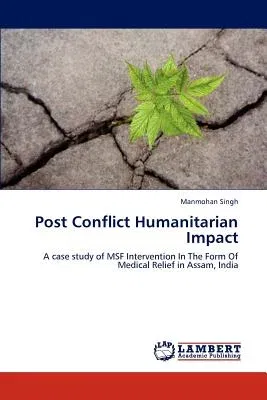Manmohan Singh
(Author)Post Conflict Humanitarian ImpactPaperback, 20 October 2011

Qty
1
Turbo
Ships in 2 - 3 days
In Stock
Free Delivery
Cash on Delivery
15 Days
Free Returns
Secure Checkout
Print Length
72 pages
Language
English
Publisher
LAP Lambert Academic Publishing
Date Published
20 Oct 2011
ISBN-10
3846536156
ISBN-13
9783846536155
Description
Product Details
Author:
Book Format:
Paperback
Country of Origin:
US
Date Published:
20 October 2011
Dimensions:
22.86 x
15.24 x
0.43 cm
ISBN-10:
3846536156
ISBN-13:
9783846536155
Language:
English
Location:
Saarbrucken
Pages:
72
Publisher:
Weight:
117.93 gm

